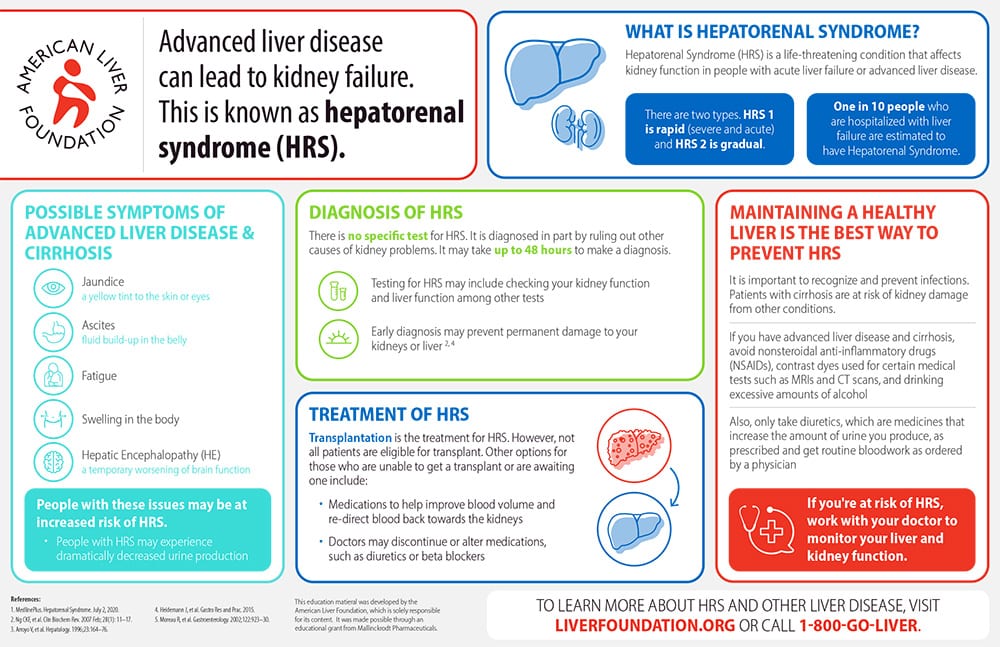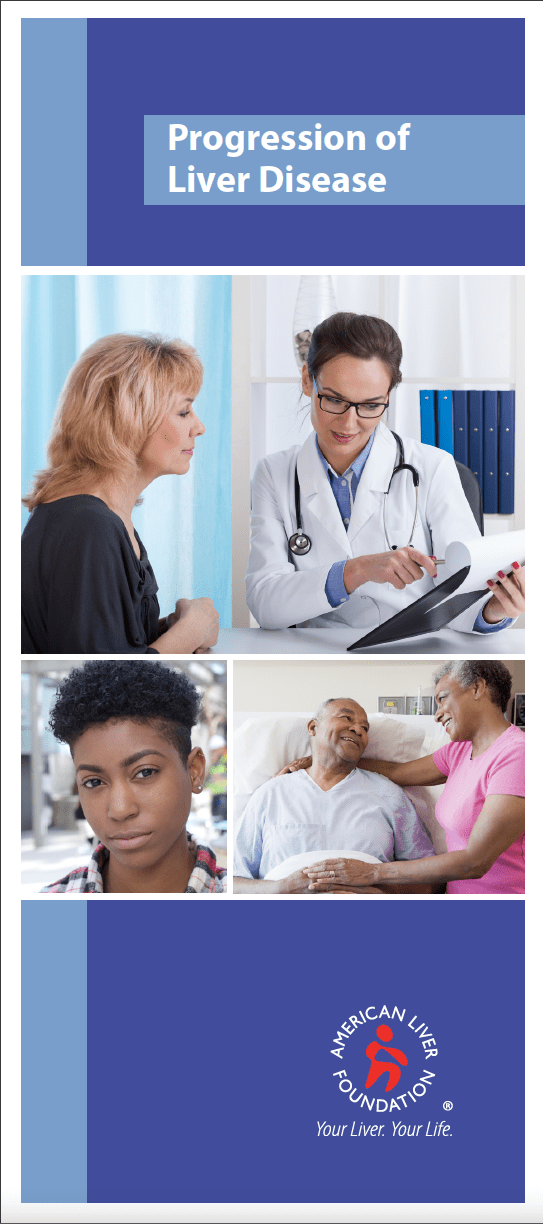Liver transplantation is the best treatment for HRS but may not be an option for people with HRS-1 who are too sick for the operation. People who are either ineligible for a transplant or waiting for one may be given renal replacement therapy (hemodialysis) or medications to improve the flow of blood to the kidneys.
Those affected by HRS may also be advised by their medical team to avoid diuretics (which can worsen kidney function), promptly treat infection, and maintain their electrolyte balance. The major electrolytes in the body include sodium, potassium, calcium, magnesium, phosphate and chloride. Medical providers can determine electrolyte levels with a few tests and recommend how to best address an imbalance.
In some cases, people affected by HRS — particularly those needing dialysis or suffering from advanced kidney failure in the months leading up to a planned liver transplant — may need a kidney transplant as well as a liver transplant.
Even after a successful liver transplant, kidney problems may persist, sometimes requiring dialysis. Dialysis is a treatment that removes waste, salt and extra water from the body and replicates other functions normally done by healthy kidneys.
Potential new treatments are being studied. You can learn about privately and publicly funded clinical studies of treatments for HRS and other conditions at the National Institutes of Health’s clinical trials finder or by clicking here.
Other options for people who are unable to get a transplant or who are awaiting one include:
- Vasoconstrictive agents to increase blood pressure that is too low
- Albumin to improve renal function








